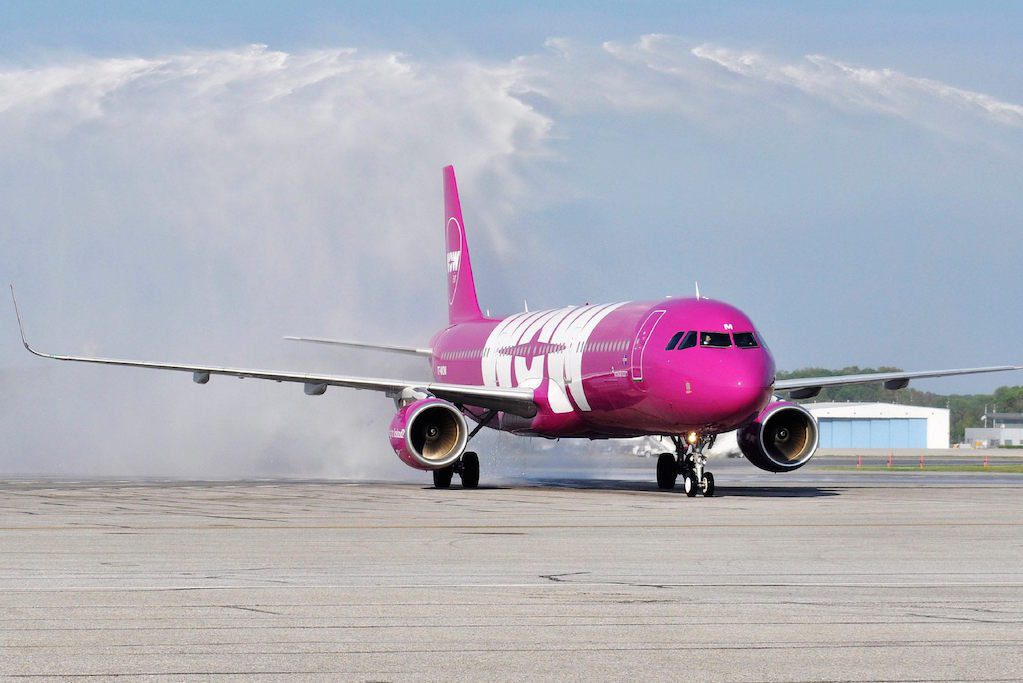Skift Take
European and U.S. airlines years ago underestimated the threat posed by short-haul discount airlines. Since then legacy carriers have treated transatlantic low-cost airlines as serious competitors. But there's reason to believe the low-cost model may not be as appropriate for longer routes. Legacy carriers might be OK this time.
Delta Air Lines CEO Ed Bastian on Wednesday dismissed threats posed by discount transatlantic airlines, saying carriers like Wow Air and Norwegian Air don’t present a “meaningful risk” to established airlines, while asking whether long-haul discounters can continue to justify their models as fuel prices increase.
“I don’t think that fuel prices, for example, are sustainable over time in the ultra low-cost markets,” Bastian said at the Bernstein 34th Annual Strategic Decisions Conference. “Fuel prices have jumped 50 percent in the last year. It’s causing a big impact on their business model and something that the bigger carriers, the more premium carriers, can actually afford and can invest against to be able to get the pricing where it needs to be.”
Bastian is surprisingly confident considering the two most influential transatlantic discounters are flooding the U.S. market with capacity, not only from established markets, like New York and Los Angeles, but from smaller ones, including St. Louis, Providence, Rhode Island, and Newburgh, New York. Delta was probably never going to fly transatlantic from those airports, but it might carry connecting passengers through its hubs to London, Barcelona or Dublin.
Bastian is bullish for a couple of reasons. One is fuel. Wow and Norwegian have some built-in cost advantage, especially because they pay their workforce significantly less, but all airlines pay roughly the same price for jet fuel. As the cost goes up, as it has recently, discount airlines lose much of their overall cost advantage.
Delta’s costs rise, too. But its can overset that by increasing prices and selling more expensive business class tickets, which might cost $5,000 or more. However, discounters rely on leisure travelers, who can be far more price sensitive, even in a strong economy. If Norwegian and Wow raise their prices too much, their customers might stay home. Or they might go to Orlando or Las Vegas instead — on a U.S. airline.
Bastian said higher fuel prices should make transatlantic discounters more rational about what routes they fly. On Friday, oil prices were trading at roughly $68 a barrel, up more than $10 since February. Price increases can hurt marginal routes.
“When fuel prices fell to $30 a barrel, it created a lot of dysfunctional behavior within the industry,” Bastian said. “We all made a lot of money, but it also created a lot of dysfunctional behavior. Fuel prices at $70, $80, even $90, I think, is much more of a sweet spot for the industry because it causes people to think before they put capacity out into the market in terms of how they’re going to be able to afford to price for it. ”
Bastian also said he is confident about withstanding challenges from long-haul discounters because he argues Delta chases a different type of customer. In explaining the phenomenon, Bastian borrowed an argument usually used by discount airline executives, who sometimes they say they don’t compete with legacy carriers any more than a budget hotel chain fights for customers with a five-star brand.
“Customers that travel on those ultra low-cost carriers are people that otherwise would not be flying,” Bastian said. “They take their traffic from the couch into the airplane or whatnot.”
Bastian is perhaps more cavalier than some of its full-service competitors. Willie Walsh, CEO of International Airlines Group, owner of British Airways, Iberia and Aer Lingus, is taking the threat seriously, going so far as to build his own discount airline, called Level, to compete with Norwegian in key markets. Last month, International Airlines Group announced it had taken a 4.6 percent stake in Norwegian, and it has made a couple of offers to buy the entire company.
Walsh has said Norwegian proves customers want the no-frills model on transatlantic flights, just as they do within Europe and in United States. They’re willing to pay for bags and food, for example.
Other carriers, including Delta, are avoiding launching their own low-cost airlines and taking a more nuanced approach. They’re selling basic economy transatlantic fares that often don’t come with some goodies passengers expect, such as free checked bags and advanced seat assignments. For the most part, though, passengers receive the full legacy carrier experience, including free food, beer and wine and access to Wi-Fi and entertainment.
If customers want that basic economy product, Delta is happy to sell it to them. But otherwise, Bastian said, the airline is fine with some prospective passenger defecting to discounters.
“You’ll always have sources of people trying to come into that market in terms of the ultra low-cost guys,” he said. “But again, we’re not looking for those customers.”

Have a confidential tip for Skift? Get in touch
Tags: delta air lines, norwegian air, wow air
Photo credit: Delta Air Lines CEO Ed Bastian said he is not concerned about discount airlines on transatlantic routes. Pictured is a Wow Air Airbus A321. Wow Air
